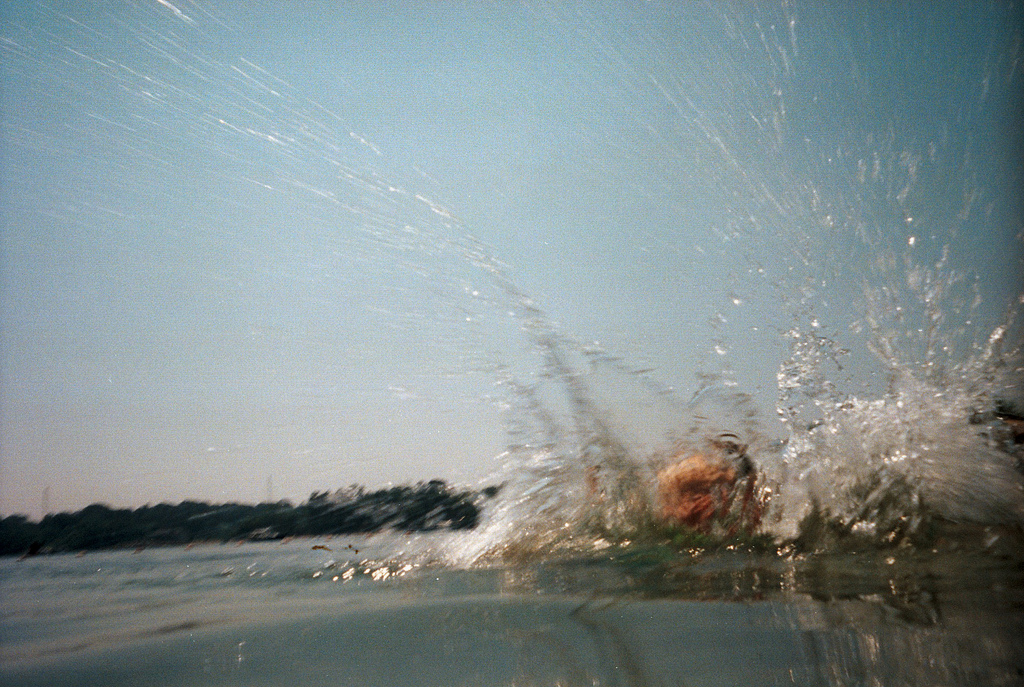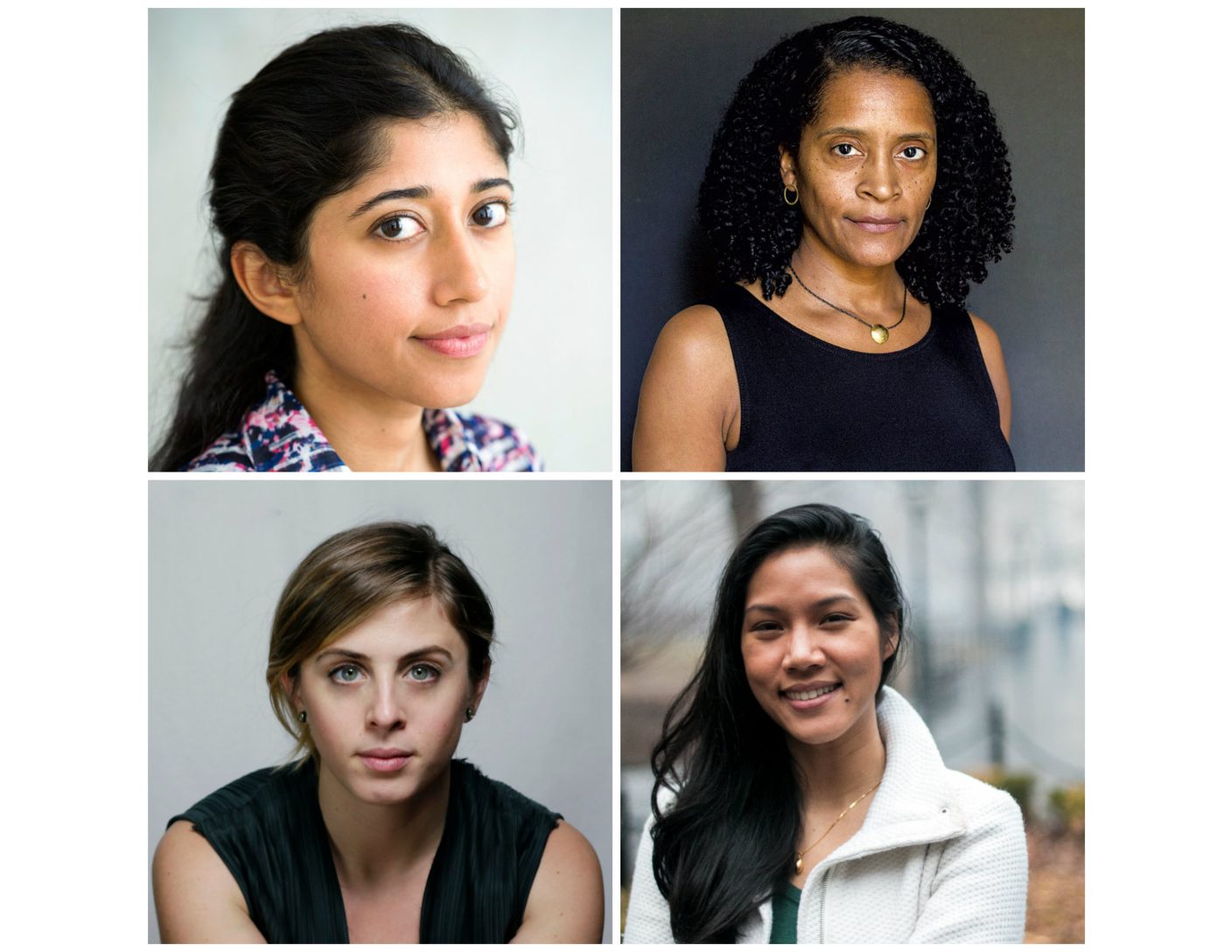In conversation with Columbia Journal’s Online Poetry Editor Brian Wiora, the poet Cynthia Cruz, discusses Nomadism, the nature of dreams, and of course, her poetry. After reading this interview, we hope you will read a selection of her poems, published here.
Brian: The way I would describe your style is based in place. You have these poems like “Siberia” “Budapest” and “Winter Asylum.” But the way you talk about these places is almost timeless. Some of them are from your particular experience, but they have a more universal quality to them. Could you elaborate on how you view time and place in your work?
Cynthia: What I am most interested about in terms of place is the idea of nomadism, which I’ve experienced from my family’s travels from place to place. They had to live in exile. I lived in literally twenty places by the time I was in Kindergarten. That kind of nomadism affects the way that my parents lived, and of course, the way I live too. For some people, there is no actual home.
My mother is German and for many years she said that she thought her father might have been Jewish. So, I did a lot of research and found out that he came from the Ukraine and he was Jewish. But I can’t get a certificate for that. My Dad’s parents came over from Chihuahua, Mexico. But there are no documents for that either. The fact that my Mom and Dad ended up together, they’re both Nomadic, but it’s not like they talk about it. They sit around and watch television. But nomadism informs their everyday lives.
This story reminds me of a line in your poem “Coco” that says, “The wall clock ticking deep.” That’s almost an Ars Poetica, right?
It makes me think of the idea of story. I think a lot about how history informs us, but how history is often about stories. That “deep” is about how time deeply affects us, but it’s not a literal thing.
Speaking of your writing, I am interested about who influences you. One name I kept coming back to is Louise Glück, in the way that you both use adjectives as a form of imagery. Do you find that she influences your work? Who else influences you?
I love her work and devoured it all in grad school. One of the things I love about her is the way that she thinks of each book as an entirely new thing, which is something I try to do too.
In grad school, I really loved Brenda Hillman and Jean Valentine. And then I was introduced to Lucie Brock-Broido, who was always Mother Poetry. Lucie introduced me to Franz Wright and the Germans, and of course Frank Stanford.
It is interesting you mention Lucie because you both wrote about Emily Dickinson. She wrote “The Master Letters” and you wrote “Letters to Emily.” Did you ever talk with Lucie about that, or any of your other work?
When I was a student at Sarah Lawrence, I was in a workshop with Marie Howe. She told me that there was someone who she wanted me to meet, someone who she thought would understand my work. And then I started working with Lucie in different groups. That was very important during that time because I felt like no one understood my work. I felt alienated in my program. I felt like she got what I was trying to do.
I want to go back to the Glück quote you mentioned, about how each book is its own thing. Do you think of each of your books as belonging to a different period or style? How have you changed throughout each book?
I don’t commit to doing something entirely different each time. I am changing so fast, each book is different because I’m thinking about different things. The form changes, and then the specifics change. I would say all of my books come from different phases. I think there’s a break between my last book and my upcoming book, even though it picks up where the last one left off.
Speaking of the new poems, we are very excited to publish four brand new poems of yours on the Columbia Journal website. I want to talk about each poem. The first poem, called “CORRESPONDENCE,” features all these different places. Even the line, “From city to city” contains a note of differentiation. How do you see all these different places working together?
I’ve been thinking about the difference between symbolic and metaphorical. I wanted to put Trakl in a poem for a long time, especially about his struggle, and his mom’s struggle, and how his mother’s struggle influenced his. People just say he’s schizophrenic, but that’s so reductive. That’s what I’m thinking about a lot, how influence works.
That line, “from city to city,” also refers to how my father promised me he was going to buy me a pony because we were constantly moving from place to place, and it was very traumatic. He never did. That reminds me of the Trakl story; his mother kept collecting stuff but not for him. She was compulsively filling her apartment with stuff but neglecting him and his sister.
There’s also this line, “to live inside one’s mind is its own locked hotel room.” I have a whole series of poems in this book about hotel rooms. Hotel rooms are like airports: a non-place place. It’s like going inside a city that’s completely clean.
I write about the desire to not be reduced, to escape stereotypes. That I’m not just from one place. I’m from city to city too.
I want to go back to the first thing you said, about the difference between the symbolic and the metaphorical. Can you elaborate on that?
I’m paraphrasing here, but I believe Kafka said he never used metaphors, because they are so reductive. I’ve been trying to use the symbolic instead, so when I say going “from city to city,” we open up a lot of possible connections. But if I had said, “going from city to city is like X” that would be a metaphor. The symbolic allows for a Venn diagram of possible interpretations.
The next poem is called, “STILL LIFE WITH POLAROID.” I am interested in the way you talk about other art in your poetry. This poem is about film. You have this line, “In the dream from which/I wake and cannot sleep.” Is that the way you see film working?
When I was at School of Visual Arts, there was a filmmaker who had us watch extended films, sometimes three hours. The filmmaker knows that at some point, you are going to crash back into your world, and then go back into the film. That’s part of the experience. I think that’s what a poem does as well, especially these long poems that I’ve been working on. I keep trying to interrupt myself. I make a declarative and introduce a different thing: a rupture, a gap.
There’s also this idea that dreams are more real than life. I always think that my dreams are stupid, but what if that’s the real? When I wrote this poem, I was documenting everything. All the poems are about everything I was thinking about. The idea about documenting everything also finds its place in the film.
The next poem is called “THE UNDERSONG” I had never heard that word before and, apparently, it is defined as, “a droning accompaniment to a song.” Can you talk about your relationship to undersongs? Do you think this poem is an undersong or is there an undersong to this poem?
When we were talking about listing all the places that symbolizes nomadism, that, to me, is the undersong. That there is something underneath that I’m not making explicit because that would reduce it. There’s an undersong to each poem. And even if you don’t get it, you hear it.
It reminds me of Mark Fischer’s concept of “Hauntology.” When I make a poem, all the early drafts have been edited out, but whatever is left still haunts the poem. I wrote this poem in Warsaw in 2016, before the Polish government became authoritarian. I was very interested in the history. World War II was everywhere. There was also the brutalism from Communism that was not that long ago, still there. And now the extreme Capitalism with all the cheap storefronts. It was strange to be in a city with a haunting of all these histories. But, they are still there. “The plastic transistor radio” is a reference to that history. There isn’t “Warsaw” in this poem, but the “brutal” still haunts it.
The last poem is, “FRAGMENT: HOTEL WARSAW.” I think of this moment of “eating chocolates in the hotel tub.” That’s such an intimate moment in, as you said earlier, “a non-place place.” How do you describe this relationship between the place you stay, such as a hotel, and a place you live?
Well, there are people who live in hotels, but they are either very rich or very poor. But if you’re not living in a hotel, then you don’t have any of your stuff. It’s free from the haunting. Even some places do the weird fold with the toilet paper. Everything is the way it would never be in my apartment. It is without intimacy, even if I brought a photograph of myself.
This poem is different from the others because of the fight between the intellect and the body, like in the line, “I want my body/ to lead me, not the mind.” The hotel represents this cooling, this distance. You think: If I could just be in this place that’s clean, in a different city… But, it’s a failure.
What do you think it’s like being a poet today? What is poetry like today? Do you think technology has changed the way we write poetry?
Aside from social media, its constant interference, the way it is used as a kind of advertiser and self-promotion, it is, I imagine, no different than it was before. Without access to the Internet, something I am slowly moving toward, none of this social media quickness and competitiveness of the Internet matters.
What are you looking forward to in terms of the future of poetry?
I want to see the writing of people outside the main literary systems, for example: rural poets, working class and poor poets, poetry written from the prisons, and from those deemed mentally ill.
I wanted to wrap up this interview with several popcorn questions, just sort of quick answers to fun questions. First off, what are you working on right now?
I’ve begun a series of new poems, they are in their early stages. I’ve been thinking a lot about my origins and, with regard to writing, to my first collection, Ruin, which I would like, were it possible, to rename, Origin. These new poems are a returning, of sorts, to where I began.
If you could have dinner with any dead writer, who would it be?
Mark Linkous
If you couldn’t write or teach, what would you do?
Make music.
If you could be any animal what would you be?
CYNTHIA: A wolf
If I could give you an all-expenses paid vacation anywhere in the world where would you go?
The South
Are you a coffee drinker or you a tea drinker?
Coffee in the morning, black tea in the afternoon.
Lennon or McCartney?
Neither.
Are you an early bird or a night owl?
Both.


